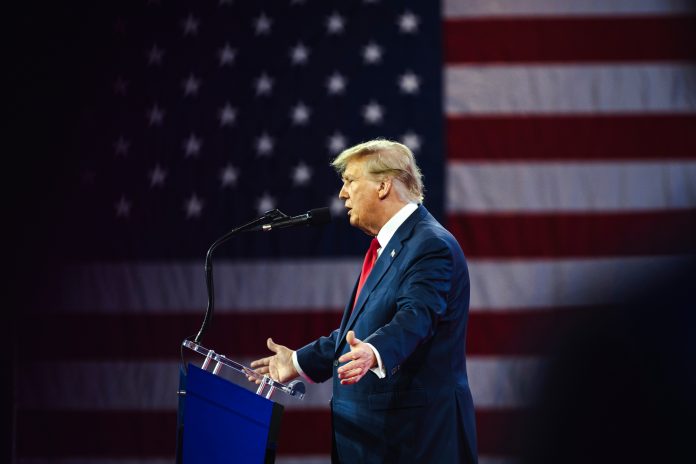Donald Trump assumed office on January 20, and small business owners are bracing for significant economic and regulatory changes. Trump’s administration has laid out ambitious plans that could transform the way small businesses operate in the U.S. Entrepreneurs must stay informed about these potential shifts and prepare for both opportunities and challenges in the months ahead.
Here are four key areas where Trump’s presidency is expected to impact small businesses during the administration’s first 100 days:
Trade policies and tariffs
Trump’s “America First” agenda emphasizes rebalancing trade relationships, proposing a 25% tariff on imports from Mexico and Canada and a 10% tariff on goods from China. While these measures aim to boost domestic manufacturing and reduce trade deficits, they pose immediate challenges for small businesses that rely on imported materials or products.
For example, small businesses sourcing packaging, raw materials, or specialized components from abroad may face increased costs. These higher expenses could compress profit margins, force price hikes for consumers, or disrupt supply chains. Conversely, businesses within industries poised to benefit from a resurgence in U.S. manufacturing could gain new opportunities as tariffs make domestic products more competitive. The long-term effects will largely depend on how small businesses adapt their sourcing strategies and operational plans.
Tax reforms
Simplifying the tax code and reducing corporate tax rates are cornerstone initiatives of the Trump administration. The plan includes cutting the corporate tax rate to 15% and reducing the number of tax brackets. For small businesses, this could mean significant tax relief, enabling owners to retain more earnings for reinvestment or growth.
However, the details of these reforms remain unclear. Questions about how tax breaks will differentiate between large corporations and small businesses—especially pass-through entities like sole proprietorships and partnerships—leave entrepreneurs waiting for specifics before making major financial decisions.
Immigration
Stricter immigration policies, including enhanced border security and deportations, are expected to reduce the availability of immigrant labor. Sectors such as agriculture, construction, and hospitality—which heavily depend on immigrant workers—may face labor shortages.
For small businesses, a diminished labor pool could increase hiring challenges and operational costs. This shift may prompt owners to explore automation or other efficiencies, but those solutions may not be viable for every business. Balancing workforce needs with compliance to new regulations will likely require creative problem-solving.
Deregulation
Trump’s pro-business stance includes a commitment to reducing regulatory burdens. Lower compliance costs and greater operational flexibility could benefit small businesses in sectors like energy, finance, and healthcare. However, the rollback of certain regulations may also lead to fewer consumer and employee protections, creating a mixed landscape for entrepreneurs.
The sectors targeted for deregulation will shape the specific advantages and risks for small businesses. Entrepreneurs should monitor policy changes closely to understand how reduced oversight might influence their industries and adjust their strategies accordingly.
Navigating the road ahead
Trump’s policy initiatives signal both opportunities and hurdles for small businesses. While tax reforms and deregulation offer potential financial and operational relief, trade and immigration policies introduce uncertainties that could disrupt operations. Entrepreneurs must remain agile, informed, and proactive in adapting to these changes.
As the administration’s policies take shape, small businesses will need to leverage their inherent flexibility and resilience to thrive in a rapidly shifting economic landscape. Whether it’s rethinking supply chains, exploring new markets, or investing in innovation, the ability to adapt will be critical for success in the Trump era.










